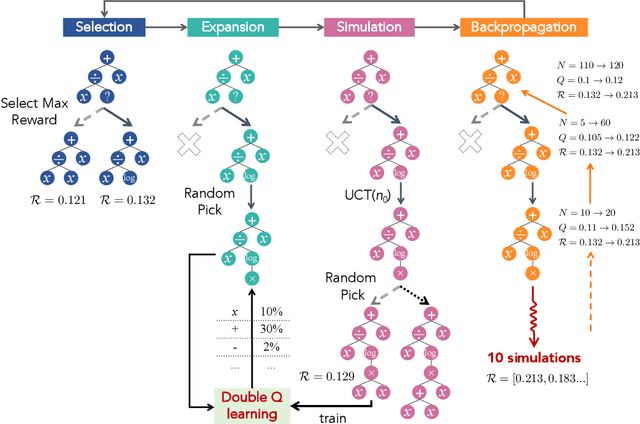RSRM: Reinforcement Symbolic Regression Machine
Paper and Code
May 24, 2023



In nature, the behaviors of many complex systems can be described by parsimonious math equations. Automatically distilling these equations from limited data is cast as a symbolic regression process which hitherto remains a grand challenge. Keen efforts in recent years have been placed on tackling this issue and demonstrated success in symbolic regression. However, there still exist bottlenecks that current methods struggle to break when the discrete search space tends toward infinity and especially when the underlying math formula is intricate. To this end, we propose a novel Reinforcement Symbolic Regression Machine (RSRM) that masters the capability of uncovering complex math equations from only scarce data. The RSRM model is composed of three key modules: (1) a Monte Carlo tree search (MCTS) agent that explores optimal math expression trees consisting of pre-defined math operators and variables, (2) a Double Q-learning block that helps reduce the feasible search space of MCTS via properly understanding the distribution of reward, and (3) a modulated sub-tree discovery block that heuristically learns and defines new math operators to improve representation ability of math expression trees. Biding of these modules yields the state-of-the-art performance of RSRM in symbolic regression as demonstrated by multiple sets of benchmark examples. The RSRM model shows clear superiority over several representative baseline models.
 Add to Chrome
Add to Chrome Add to Firefox
Add to Firefox Add to Edge
Add to Edge